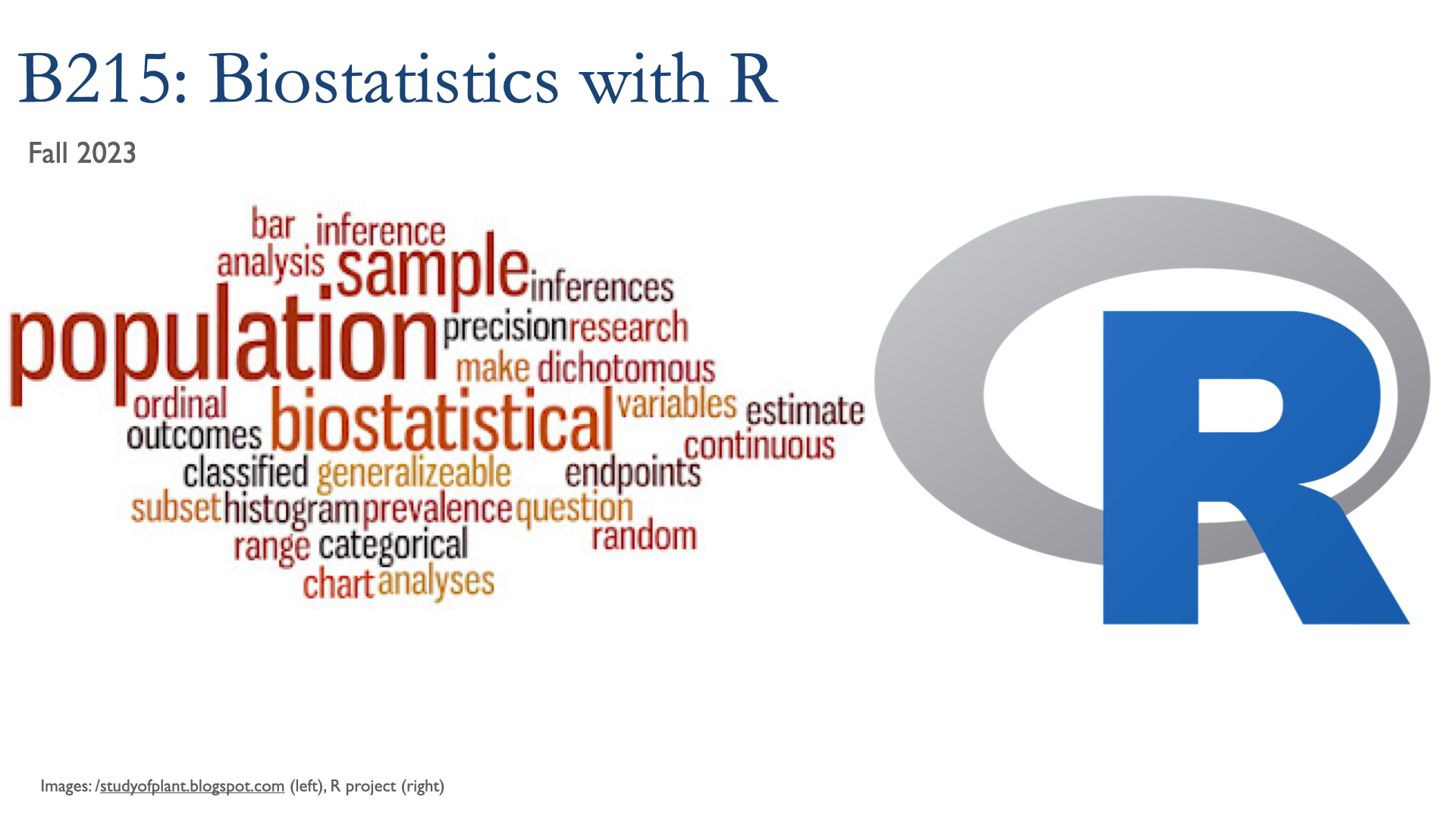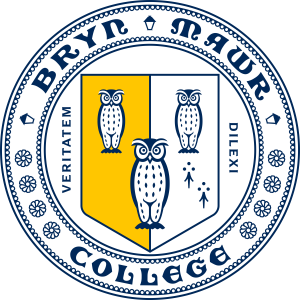
*Professor:* Dr. Bárbara D. Bitarello (bbitarello@brynmawr.edu, Park Science 211)
*TA:* Levi Raskin (lraskin@haverford.edu)
*Communication:* Piazza (general interest questions) and email (private matters).
*Textbook:* "The Analysis of Biological Data" (3rd edition) by Whitlock and Schluter.The second edition is acceptable but you might need to figure out the corresponding pages.
*Laptop & Calculator:* For labs, we will need a computer with a browser. You can use your own laptop or you may borrow a laptop from the bio department. For exams, you will need a calculator. You will not be allowed to use devices as calculators.
Mask policy: For everyone's safety, I recommend wearing masks whenever possible. Removing them for drinking is fine, of course, but please wear them otherwise.
-------
By the end of this course you will be able to:
explain why data beat anecdotes;
critically evaluate a research study and knowledgeably consume research;
explain the fundamental concepts and apply the basic procedures that underlie descriptive and inferential statistics.
generate testable hypotheses and design biological research using different methods, data collection tools, and analysis techniques;
use R/RStudio to carry out statistical analyses and be able to correctly interpret and convey the results via text, tables, and graphs;
explain why statistical significance does not necessarily imply practical importance; use key principles of science, including use of evidence, scientific reliability and validity, and fair and thorough evaluation of research inside and outside the classroom;
understand that ethical principles, behavior, and decision-making pertain to all aspects of the research process;
find, read, and understand scientific articles and synthesize scientific results.
If you’re excited about this, this is the right course for you! If you’re not and you have any interest in life sciences, it is - I must say - also for you
Topics we will cover in lectures:
*Statistics & Samples
* Displaying & Describing Data
* Probability
* Estimation & Hypothesis Testing
* Proportions & Probability Models
* Contingency Tables
* The Normal Distribution
* Comparing Samples
* Experimental Design
* Correlation
* Regression [maybe]
* Bootstrapping & Permutation Tests [I hope!]
*TA:* Levi Raskin (lraskin@haverford.edu)
*Communication:* Piazza (general interest questions) and email (private matters).
*Textbook:* "The Analysis of Biological Data" (3rd edition) by Whitlock and Schluter.The second edition is acceptable but you might need to figure out the corresponding pages.
*Laptop & Calculator:* For labs, we will need a computer with a browser. You can use your own laptop or you may borrow a laptop from the bio department. For exams, you will need a calculator. You will not be allowed to use devices as calculators.
Mask policy: For everyone's safety, I recommend wearing masks whenever possible. Removing them for drinking is fine, of course, but please wear them otherwise.
-------
By the end of this course you will be able to:
explain why data beat anecdotes;
critically evaluate a research study and knowledgeably consume research;
explain the fundamental concepts and apply the basic procedures that underlie descriptive and inferential statistics.
generate testable hypotheses and design biological research using different methods, data collection tools, and analysis techniques;
use R/RStudio to carry out statistical analyses and be able to correctly interpret and convey the results via text, tables, and graphs;
explain why statistical significance does not necessarily imply practical importance; use key principles of science, including use of evidence, scientific reliability and validity, and fair and thorough evaluation of research inside and outside the classroom;
understand that ethical principles, behavior, and decision-making pertain to all aspects of the research process;
find, read, and understand scientific articles and synthesize scientific results.
If you’re excited about this, this is the right course for you! If you’re not and you have any interest in life sciences, it is - I must say - also for you
Topics we will cover in lectures:
*Statistics & Samples
* Displaying & Describing Data
* Probability
* Estimation & Hypothesis Testing
* Proportions & Probability Models
* Contingency Tables
* The Normal Distribution
* Comparing Samples
* Experimental Design
* Correlation
* Regression [maybe]
* Bootstrapping & Permutation Tests [I hope!]
- Instructor of record: Bárbara Bitarello
- Other editing teacher: Seba De Bona
Instruction Mode: In Person
Class Meeting Dates and Times: Tuesday & Thursday 9:45-11:15am; Wednesday 1:10-4pm
Remote details: Some real-time/synchronous participation required.
